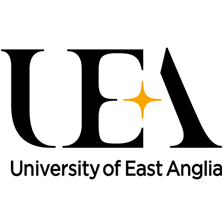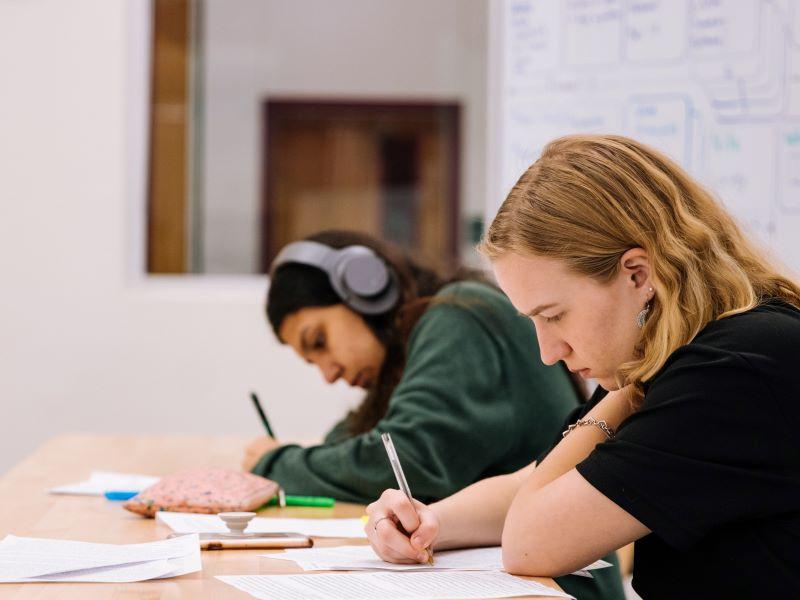
Partnering with industry for authentic experiences and assessment
Getting students workplace-ready is a challenge. However, partnering with industry can help us offer authentic experiences and assessments that equip our students for successful futures in their chosen fields
Traditional higher education (HE) assessment, with its emphasis on conventional exams, encourages students to rely on surface-level learning and memorising information for a specific event. While these approaches have their place in HE settings, they deliver little impact on lifelong learning, so it is widely accepted that assessments need to evolve to examples that are more authentic to the workplace.
What is authentic assessment?
Conversations on authentic assessment first began in 1989 when Grant Wiggins wrote about it in his book A True Test: toward more authentic and equitable assessment. It requires students to complete tasks that mirror those seen in the workplace. These tasks facilitate a deeper level of learning and help enhance students’ career prospects.
With transferrable skills such as communication, critical thinking and problem-solving highly valued by employers irrespective of graduate destinations, authentic assessment provides HE students with valuable opportunities to develop and evidence their professional skills. Embedding authentic assessment from the start of a university course allows students to practise and refine their skills before entering the workplace. Such contextualised learning experiences can also have a positive impact on student motivation and engagement because they allow students to be able to see how their learning maps to their career goals.
External analyses and obligations to meet Quality Assurance Agency for Higher Education (QAA) benchmark statements that include expectations of professional behaviours, conduct and competencies mean that university courses have increasingly placed more focus on producing graduates who can transition smoothly into employment. To use bioscience as an example, related courses develop a wide range of skills, meaning that these graduates can consider a diverse array of jobs and careers. Some graduates will move into roles in commercial “for-profit” industries, but many will move into not-for-profit organisations, the healthcare sector, research institutes and educational institutions. It is also clear that bioscience graduates are attractive to organisations outside the subject area and that many graduates will try unpaid, volunteering opportunities. This means that it is difficult to define the typical employer or “industry” for these courses.
Inviting industry partners to your institution
Collaboration with industry partners is an effective way to introduce authentic assessment strategies into the curriculum. This may take many forms throughout modules and courses, but one productive approach is to enable students to interact with the partners. This can be through meet-and-greets or invited-speaker talks, during which an employer representative can explain what their organisation does, helping students to gain a wider appreciation of the skills they need to work in industries relevant to them.
Successful alumni tend to have strong feelings of goodwill towards their former universities and are likely to engage with opportunities at the early stages of their careers. Reach out to individuals who can highlight the skills they have made the most use of in their careers and provide insight into how their degrees link to their chosen careers.
Finally, inviting employers to show them work your students have undertaken in the final year of your course, such as capstone projects, gives them sight of the levels of skills and experiences of those taking your course.
- Resources for higher education professionals on assessment and quality assurance
- Giving students options when it comes to assessment
- What block learning taught me about meeting diverse student needs
Organise student visits to workplaces
Giving students the opportunity to visit industry organisations immerses them in the kinds of environments in which they might end up working in the future and equips them with first-hand knowledge of what their careers might look like. These workplace visits can be facilitated through communication with alumni via platforms such as LinkedIn or through pre-existing professional relationships. In other cases, they might come about through networking with industry professionals at conferences or online.
Examples of effective opportunities for biomedical or microbiology students include visits to diagnostic laboratories and, for ecology students, field trips to conservation sites and areas of scientific interest.
Opening up dialogue between industry and your institution
Building relationships with industry requires a two-way dialogue that allows partners to have direct input into curriculum content and the types of assessments that reflect real-world practices and develop appropriate workplace skills. This ensures that module and course-level design is current and responsive to industry needs. Likewise, industry partners also benefit from interactions with institutions through discussion of graduate skills gaps, how best to prepare students to become workplace-ready and how industries are evolving.
Nottingham Trent University and the University of East Anglia have both established an Employability Advisory Board (EAB) with representatives from a spectrum of bioscience career sectors. Board meetings are usually annual or biannual and have been successful both in person and online. Online meetings are particularly useful if members are from national and international industries. If you are keen to do the same, we advise you to reach out to industry contacts you have already established relationships with or to ask colleagues if they have contacts in relevant sectors. Attending conferences can also help you to network with potential board members and grow your networks. Building alumni networks using sites such as LinkedIn is another great way of generating a pool of individuals who might be interested in collaborating.
Reaching out to invite a potential new board member for the first time can feel daunting – but remember, the recipient might feel very flattered to have been asked to represent their industry. In some cases, they may not be able to commit but might know a colleague who can.
Integrate work experience into course design
Another effective approach to authentic assessment is to integrate placements into modules or courses with time commitments that range from a few hours or a few days to a full academic year. Although placements are useful, bear in mind that marking assessments associated with these will require significant involvement from academic staff. However, immersion in an environment with very different priorities, rules and expectations builds professional attributes that are difficult to recreate within an HE setting.
By working with industry to produce activities reflecting the myriad challenges professionals face in the workplace, it is possible to create assignments that are less about essay writing and rote learning and more about the application of relevant skills or solving real-world problems.
Getting our students workplace-ready is a challenge. However, partnering with industry can help us offer authentic experiences and assessments that enhance transferable skills acquisition and equip our students for successful futures in their chosen workplaces.
Richard Bowater is a professor of biochemistry and molecular biology education at the University of East Anglia. Michael Loughlin is a principal lecturer (learning and teaching manager) at Nottingham Trent University, Sarah Rayment is a senior lecturer in molecular sciences in the biosciences department at Nottingham Trent University and Janine Wilkinson is a lecturer in biomedicine at the University of East Anglia.
If you would like advice and insight from academics and university staff delivered direct to your inbox each week, sign up for the Campus newsletter.



